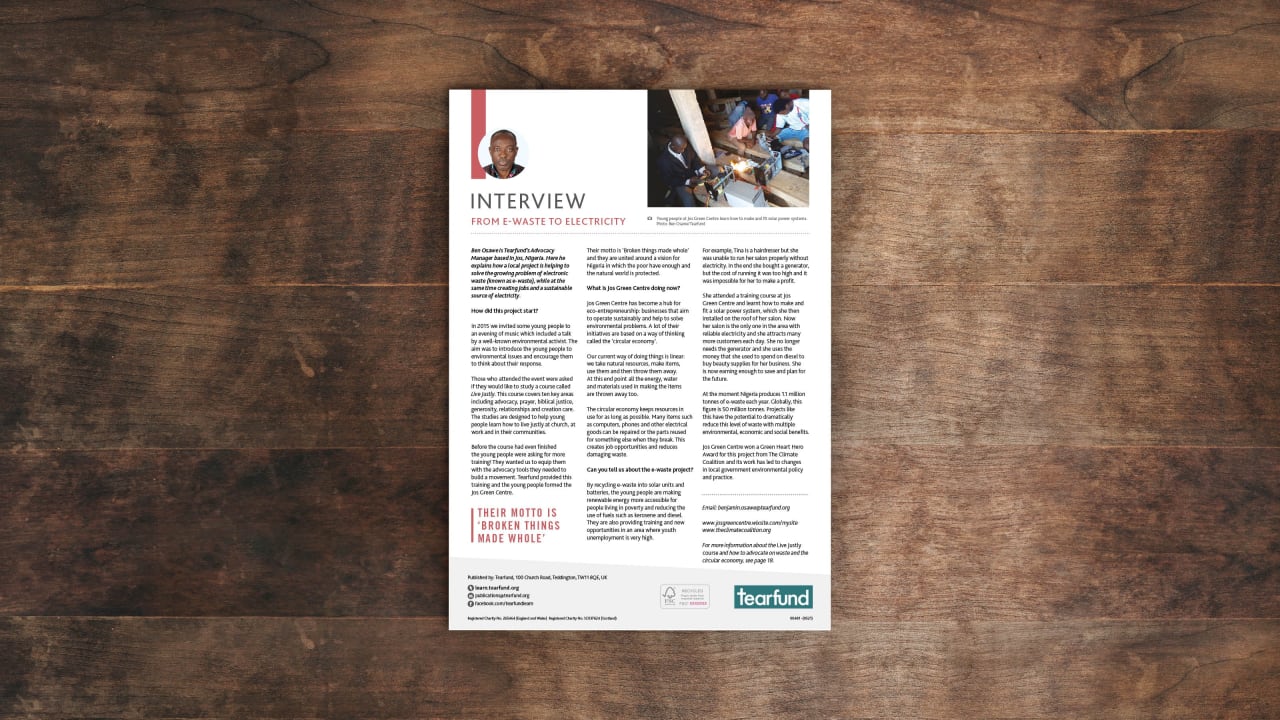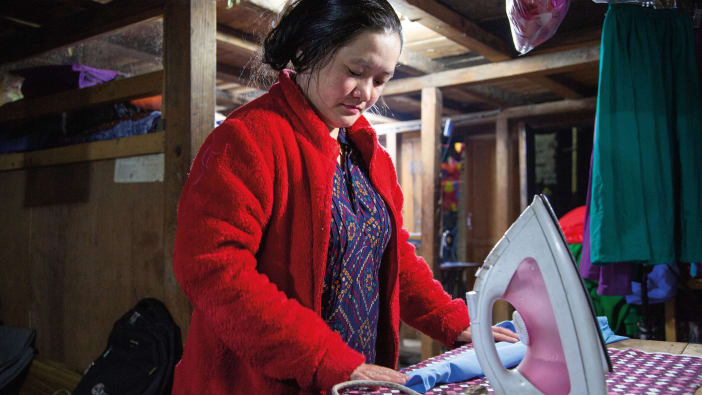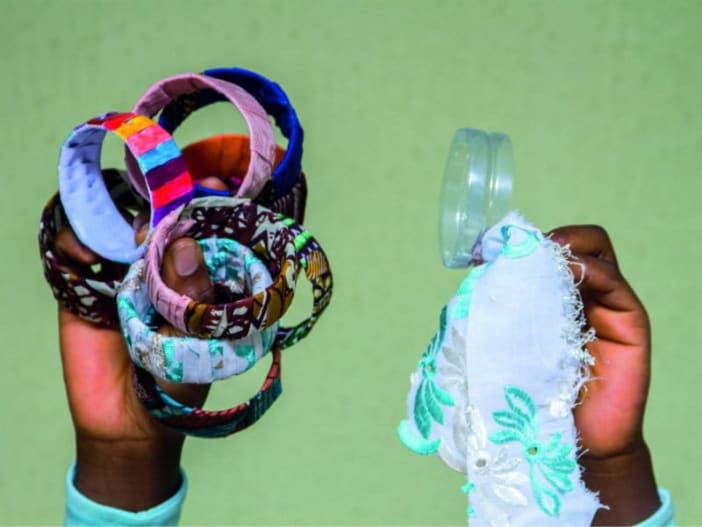Ben Osawe is Tearfund’s Advocacy Manager based in Jos, Nigeria. Here he explains how a local project is helping to solve the growing problem of electronic waste (known as e-waste), while at the same time creating jobs and a sustainable source of electricity.
How did this project start?
In 2015 we invited some young people to an evening of music which included a talk by a well-known environmental activist. The aim was to introduce the young people to environmental issues and encourage them to think about their response.
Those who attended the event were asked if they would like to study a course called Live Justly. This course covers ten key areas including advocacy, prayer, biblical justice, generosity, relationships and creation care. The studies are designed to help young people learn how to live justly at church, at work and in their communities.
Before the course had even finished the young people were asking for more training! They wanted us to equip them with the advocacy tools they needed to build a movement. Tearfund provided this training and the young people formed the Jos Green Centre.
Their motto is ‘Broken things made whole’ and they are united around a vision for Nigeria in which everyone has enough and the natural world is protected.
What is Jos Green Centre doing now?
Jos Green Centre has become a hub for eco-entrepreneurship: businesses that aim to operate sustainably and help to solve environmental problems. A lot of their initiatives are based on a way of thinking called the ‘circular economy’.
Our current way of doing things is linear: we take natural resources, make items, use them and then throw them away. At this end point all the energy, water and materials used in making the items are thrown away too.
The circular economy keeps resources in use for as long as possible. Many items such as computers, phones and other electrical goods can be repaired or the parts reused for something else when they break. This creates job opportunities and reduces damaging waste.
Can you tell us about the e-waste project?
By recycling e-waste into solar units and batteries, the young people are making renewable energy more accessible for people living in poverty and reducing the use of fuels such as kerosene and diesel. They are also providing training and new opportunities in an area where youth unemployment is very high.
For example, Tina is a hairdresser but she was unable to run her salon properly without electricity. In the end she bought a generator, but the cost of running it was too high and it was impossible for her to make a profit.
She attended a training course at Jos Green Centre and learnt how to make and fit a solar power system, which she then installed on the roof of her salon. Now her salon is the only one in the area with reliable electricity and she attracts many more customers each day. She no longer needs the generator and she uses the money that she used to spend on diesel to buy beauty supplies for her business. She is now earning enough to save and plan for the future.
At the moment Nigeria produces 1.1 million tonnes of e-waste each year. Globally, this figure is 50 million tonnes. Projects like this have the potential to dramatically reduce this level of waste with multiple environmental, economic and social benefits.
Jos Green Centre won a Green Heart Hero Award for this project from The Climate Coalition and its work has led to changes in local government environmental policy and practice.
Email: [email protected]
www.josgreencentre.wixsite.com/mysite
Further reading
Why advocate on waste and a circular economy?
By Julia Kendal
This booklet sets out why advocacy on waste is important and suggests strategies for individuals and organisations to use at local and national level. Contact us to order paper copies in English or Portuguese.
Live justly
Edited by Jason Fileta
A series of in-depth scriptural and practical studies covering several key areas including advocacy and creation care. The global edition was published in 2017 by Micah Challenge USA and Tearfund. Contact us to order paper copies in English, French, Portuguese or Spanish.
Advocacy toolkit
By Joanna Watson
A comprehensive, practical and accessible guide to the theory and practice of advocacy. Contact us to order paper copies in English, French, Portuguese or Spanish.









